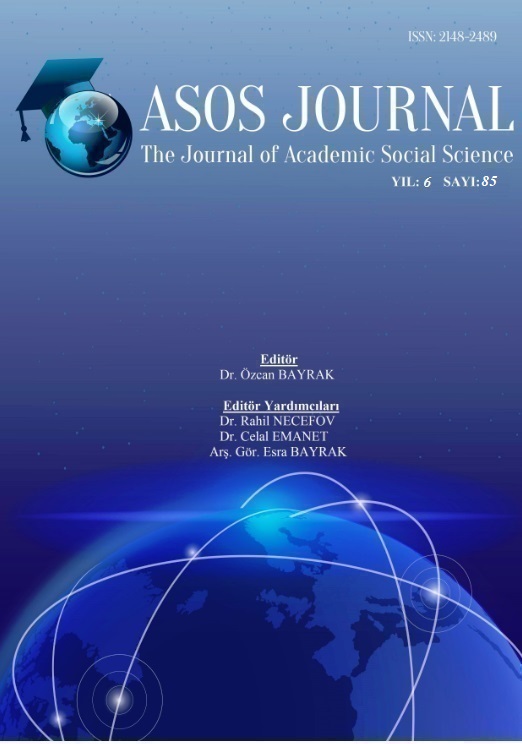Author :
Abstract
Bu çalışmanın amacı, ilkokul ve ortaokul öğrencileri için Rojas, Reser, Usher ve Toland (2012) tarafından geliştirilen Akademik Azim Ölçeğini Türkçeye uyarlayarak geçerlik ve güvenirlik çalışmalarını yapmaktır. Çalışmanın örneklem grubu 2018-2019 eğitim öğretim yılının güz döneminde, Güneydoğu Anadolu bölgesine bağlı bir il merkezindeki bir ilkokul ve iki ortaokuldaki 149 öğrenciden oluşmaktadır. Ölçeğin Türkçeye uyarlaması çeviri sürecine uygun bir şekilde yürütülmüştür. Ölçeğin geçerlik çalışmalarında; yapı geçerliği Doğrulayıcı Faktör Analizi (DFA) ile; ölçüt geçerliği Telef (2016) tarafından uyarlaması yapılan Okulda Pozitif Yaşantılar Ölçeği ile test edilmiştir. Elde edilen bulgularda ölçeğin Türkçe formunun faktör yüklerinin orta ve yüksek düzeyde; hata varyanslarının beklenen değer aralıklarında ve t değerlerinin de anlamlı oldukları görülmüştür. Ayrıca, uyum indeksi değerleri kabul edilebilir ve mükemmel değer aralıklarında belirlenmiştir. Ölçeğin güvenirlik analizi için iç tutarlılık katsayısı Cronbach alfa ile hesaplanarak .84 olarak tespit edilmiştir. Sonuç olarak Akademik Azim ölçeği Türkçe formunun geçerli ve güvenilir ölçme aracı olduğu söylenebilir. Bu ölçek kullanılarak öğrencilerin akademik azim becerilerini ölçmeye ve farklı değişkenlerle ilişkisinin incelenmesine yönelik çalışmalar yürütülebilir.
Keywords
Abstract
The aim of this study, to adapt of the Academic Grit Scale developed by Rojas et al. (2012) to Turkish by making the validity and reliability studies for upper elementary and middle school students. The sample group of the study consisted of 149 students in one elementary and two middle schools in the fall term of 2018-2019 academic year in a province center of Southeast Anatolia Region. The adaptation of the scale to Turkish was carried out in accordance with the translation process. In the validity of the scale; construct validity was tested with confirmatory factor analysis (DFA); the criterion validity was tested with Positive Experiences at School Scale adapted by Telef (2016). In the findings of the Turkish version of the scale, the factor loads were moderate and high; the error variances were in the expected value ranges and t values were significant. In addition, the good fit index values were determined as acceptable and excellent value ranges. For the reliability analysis of the scale, internal consistency coefficient was calculated as .84 with Cronbach alpha. As a result, it can be said that the Turkish version of Academic Grit Scale is a valid and reliable instrument. By using this scale, future studies can be conducted to measure the students' academic grit ability and to examine their relationship with different variables.





